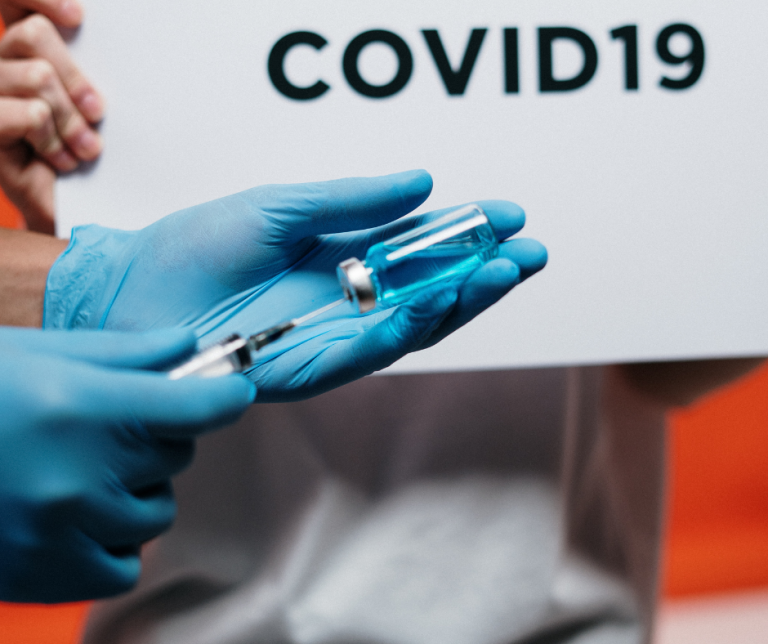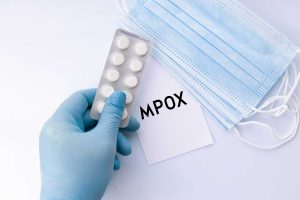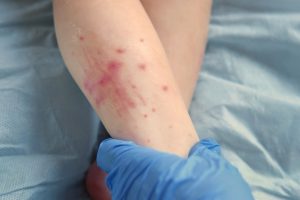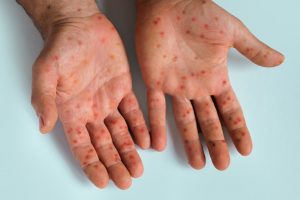Vaccines save millions of lives each year. Vaccines work by training and preparing the body’s natural defenses – the immune system – to recognise and fight off the viruses and bacteria they target. After vaccination, if the body is later exposed to those disease-causing germs, the body is immediately ready to destroy them, preventing illness. Here’s all you need to know about vaccines
Vaccines against SARS-CoV-2 allow a person to develop antibodies and T-cells to certain parts of the SARS-CoV-2 virus, so that when a person is exposed to the real virus, they can protect themselves against infection. The Pfizer and Johnson & Johnson vaccines work by providing sections of the virus RNA (genes) that code for the spike protein. When the body’s immune cells use the vaccine RNA to make spike protein, the body develops antibodies to it, and also creates special immune cells (T-cells) that are able to target and kill infected cells. When SARS-CoV-2 virus enters the throat, nose or lung after a person is exposed to an infectious person, antibodies and T-cells kill the virus.
Yes. There is good evidence to show that persons who have antibodies to SARS-CoV-2 after infection will develop stronger immune responses to SARS-CoV-2 after vaccination. Evidence has shown that some people with mild or asymptomatic SARS-CoV-2 do not develop strong antibody responses. Therefore vaccination after COVID-19 infection is a way to strengthen our immune responses and further reduce our chances of getting COVID-19.
You should wait a minimum of 30 days after recovery to receive a SARS-CoV-2 vaccine
Yes, but the risk is much, much lower than for persons who have not received the vaccine. There are two ‘scenarios’ when a person could get COVID-19 after receiving a vaccine
- A person may have been exposed to COVID-19 within 10-14 days before receiving the vaccine. When the vaccine is given, they are in the ‘incubation period’ (similar to a ‘window’ period). At the time that the vaccine is given, the person does not have symptoms, but symptoms such as cough, fever, headache and body aches and pains develop with 7-10 days of receiving the vaccine. If COVID-like symptoms occur, and persist (ie they stay or get worse) during the 7-10 days after getting the vaccine, a person should see a medical practitioner immediately.
- A person may develop a ‘breakthrough infection’ at any time (weeks, months or years) after the vaccine. The vaccine trials have shown us that there are ‘breakthrough’ infections after all types of vaccinations against SARS-CoV-2. But breakthrough infections occur much less frequently in persons who have been vaccinated, and that these infections are usually mild-moderate and don’t require admission. Trials published to date show that vaccine effectiveness ranges from 65-95%. An excellent summary of current evidence showing how effective COVID-19 vaccines are may be found on the US Centres for Disease Control website.
No. When a COVID-19 vaccine is injected into the shoulder muscle, the vaccine contains only a small part of the SARS-CoV-2 virus, the ‘spike protein gene’. This piece of the gene cannot replicate (grow) on its own, nor can it cause damage to the lungs that an infection with the SARS-CoV-2 virus causes. It is biologically impossible for a vaccine to give a person COVID-19 infection. If a person develops COVID-19 infection within 7-10 days after receiving the vaccine, this means that the person had been exposed to SARS-CoV-2 before receiving the vaccine, and that they were in the incubation (or ‘window’) period.
No. The SARS-CoV-2 PCR or rapid antigen tests work by detecting viral RNA or virus particles in secretions (fluid) from the throat or nose. Viral RNA or virus particles can only get into the throat secretions if the virus is actively replicating in the cells of the throat or nose as happens when a person has COVID-19 infection.
The South African government has chosen to wait an interval of 42 days between the first and second dose of the Pfizer vaccine. This decision was taken after evidence has shown that older patients who delay the second dose of mRNA vaccines have a much stronger immune response.
The body’s immune system takes up to 14 days to develop strong immune responses after the first dose of the Johnson and Johnson vaccine. With mRNA vaccines (e.g. Pfizer), there is some protection two weeks after the first dose, but the best protection is achieved after the second dose. There is good data emerging to show that breakthrough asymptomatic infections (COVID-19 infections following vaccination) are uncommon within 10 days (1 in 100) after one dose, and extremely uncommon (1 in 1000) after two doses of an mRNA vaccine (Pfizer or Moderna vaccines). The infections following vaccination are usually mild and do not require hospitalisation.
No, it is not necessary. Whilst vaccination will cause almost all people to develop antibodies to the spike protein after receiving a COVID-19 vaccine, a few people will not develop measurable antibodies. However, even people who do not develop antibodies to the spike protein are still likely to be protected on account of protective cellular responses (T-cell responses). A few health care workers who have enrolled in the Sisonke Johnson & Johnson trial have reported absence of antibody and cell mediated responses. Sisonke released a statement explaining the reasons for this.
There may be different reasons why antibody tests for SARS-CoV-2 are negative after a person has been vaccinated.
- Antibody tests detect antibodies to different parts of the SARS-CoV-2 virus. Some antibody tests detect antibodies to the ‘N-protein’ (nucleoprotein), and some detect antibody responses to the ‘spike protein’, whilst some detect both kinds of antibodies. As the vaccine will only cause a person to develop antibodies to the ‘S-protein’, a person who has received the vaccine will not develop antibodies to the ‘N-protein’. Therefore an antibody test based on the ‘N-protein’ will be negative.
- Antibodies following vaccination take a few weeks to develop. A negative antibody test may indicate that the test has been done too soon after vaccination.
- A person who has received the vaccine and does not have antibodies to the ‘S-protein’ even after several weeks may be one of the very few persons who does not develop antibodies at all. Currently experts still believe that these persons have some immune protection against SARS-CoV-2, because of cellular immune responses.
Yes. A vaccinated person should still quarantine (self-isolate) for 10 days following exposure to a case of COVID-19. Although the evidence suggests that people who are vaccinated are less likely to get infection after exposure, at this time point there are too few people who are vaccinated for a change in quarantine guidelines. The USA CDC has recommended that neither quarantine nor adherence to mask wearing or social distancing is required for persons who have been vaccinated. This is because over 160 million people in the USA have received a vaccine. In South Africa, too few people have received the COVID-19 vaccine, and circulating virus levels are currently too high in order to relax public health measures.
Yes. All persons should still practice social distancing and wear masks, regardless of their vaccination status. The evidence suggests that people who are vaccinated are less likely to get infection after exposure. However, no vaccine is 100% effective, and so we should still do our best to avoid exposure to COVID-19. Whilst the USA CDC has recommended that neither quarantine nor adherence to mask wearing or social distancing is required for persons who have been vaccinated, this is because over 160 million people in the USA have received a vaccine. In South Africa, too few people have received the COVID-19 vaccine and circulating virus levels are currently too high in order to relax public health measures.
Currently, COVID-19 vaccines are not recommended for pregnant women in South Africa (also see below), and for persons 18 years or under. A person who has had a severe allergic reaction to the first dose of a mRNA vaccine (e.g. Pfizer) should not have a second dose. A person who has a known allergy to a component of the COVID-19 vaccine should not receive the vaccine. There are no other medical reasons (‘contra-indications’) why a person should not take a COVID-19 vaccine. All vaccines contain additional substances to stabilise and preserve the vaccine proteins, RNA or fatty acids. Persons who have allergic reactions to these substances or to the vaccine material may develop allergic responses. Therefore, a person who has experienced allergic reactions to any kind of vaccine in the past should inform the vaccinator when receiving a COVID-19 vaccine. If a person has a mild allergic reaction to the first dose of an mRNA vaccine (e.g. Pfizer), they may still receive the second dose, but they should inform the vaccinator.
Mild allergic reactions to COVID-19 vaccines for example itchiness at the injection site happen to 1 in 1000 people. If this symptom continues, it can be treated with a cream such as a topical prednisone. Mild allergic reactions may be more common after the second mRNA vaccine. Stress-related reactions to vaccines are not uncommon and include fainting or hyperventilation immediately after the vaccine. These reactions may be managed by resting and giving sugar water or tea.
The most severe allergic reaction to any vaccine is called ‘anaphylaxis’. This is extremely rare. Preliminary data for the Pfizer vaccine suggests that anaphylaxis may occur at a rate of 11 cases per million doses. If anaphylaxis occurs it will happen within 30 minutes after vaccination. Anaphylaxis leads to low blood pressure, dizziness, difficulty breathing and collapse, with or without a skin rash. Anaphylaxis requires immediate treatment including resuscitation with fluid, adrenaline and steroids, and may require treatment in an intensive care unit. All vaccination centres have equipment and protocols on site to deal with this reaction.
Allergic reactions to any kind of medicine are usually ‘specific’ to that kind of medicine. In other words, an allergy to one kind of medicine does not mean that a person will be allergic to all medicines, or all vaccines. So, if a person is allergic to penicillin, for example, they can still receive a COVID-19 vaccine without fear of an allergic reaction.
Yes, a person who is on any kind of immunosuppressive treatment can still receive the COVID-19 vaccine. However, it is not clear how much benefit they will receive. Persons who are on immunosuppressive treatment should discuss COVID-19 vaccination with their doctor.
The South African government has indicated that pregnant women may be vaccinated when the benefit of vaccinating (e.g. health workers at high risk of exposure or pregnant women with co-morbidities) outweighs the potential vaccines risks. SARS-CoV-2 vaccine trials excluded pregnant woman from participation so there is less data on vaccine safety during pregnancy. However, as the vaccine has been rolled out, women who did not know they were pregnant were vaccinated. Their experiences are being monitored globally, even in South Africa. To date, no negative effects have been reported. It is helpful to know that all COVID-19 vaccines that have been rolled out were tested on pregnant animals and no adverse effects were reported. The WHO does not recommend pregnancy testing before COVID-19 vaccination.
Both vaccines are important, especially in persons who are at risk of severe COVID-19 and/or influenza infections. However, these vaccines should not be given at the same time. If a person has a choice, the COVID-19 vaccine should be taken first. The two vaccines should be given on opposite arms, and should be given between 14 and 28 days of each other (i.e. at least two weeks apart). This is to assist with monitoring persons if local reactions occur to each vaccine. Updated (2021) guidelines for influenza may be found here.
Yes you can be vaccinated, a previous history of blood clotting is not a contraindication to vaccination. You should continue your routine medication on the day of vaccination. If you have any concerns please consult your treating clinician.





